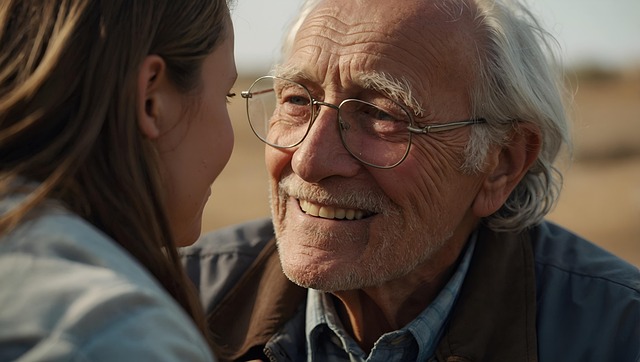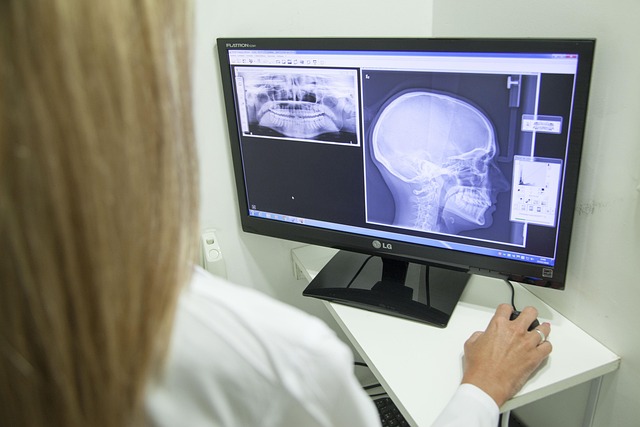Newark's senior meal programs combat elder abuse by identifying signs like sudden financial changes and physical injuries during routine interactions. Trained volunteers report red flags to authorities, collaborating with legal experts, healthcare professionals, and law enforcement. Elderly sexual assault lawyers Newark aid victims, emphasizing the need for vigilance in recognizing and addressing abuse, including neglect and exploitation. Collaboration, staff training, home visits, and community education strengthen preventive measures, reducing instances of elder abuse through early intervention.
The protection of vulnerable seniors is a paramount concern in modern society, especially with the growing awareness of elder abuse. Newark’s senior meal programs serve as more than just a nutritional resource; they offer a unique window into identifying potential cases of elder mistreatment. This article delves into the critical role these programs play in uncovering signs of abuse, neglect, and even financial exploitation targeting our elderly population. By examining the subtle indicators often present during mealtimes, we can ensure better support for seniors and provide peace of mind to their families—a service that an elderly sexual assault Lawyer Newark would commend as a proactive measure in community safety.
Understanding Elder Abuse: Signs and Red Flags

Elderly individuals, especially those living alone or with limited support systems, are vulnerable to various forms of abuse, including financial exploitation, physical harm, and psychological manipulation. In Newark, senior meal programs have emerged as crucial initiatives aimed at combating this growing concern. These programs not only provide essential nutrition but also offer a unique opportunity to identify signs of elder abuse, ensuring timely intervention and support for victims. By fostering regular interactions with seniors, volunteers and staff can become attuned to potential red flags that may indicate more profound issues at play.
Recognizing elder abuse requires a nuanced understanding of behavioral changes and unexpected patterns. Common signs include sudden changes in financial status, such as unexplained withdrawals or significant purchases, as well as physical indications like frequent injuries or poor hygiene. Emotional cues like extreme isolation, fear of certain individuals, or sudden changes in personality can also signal potential abuse. An elderly sexual assault lawyer Newark may often encounter cases where financial manipulation leads to a senior being forced into compromising situations, underscoring the multifaceted nature of this problem.
Meal program volunteers are trained to observe and document these signs, reporting any concerns to relevant authorities or social services. This collaborative approach involves close collaboration with local law enforcement, healthcare professionals, and legal experts who specialize in elder rights. By implementing robust reporting mechanisms and staying vigilant, Newark’s senior meal programs play a pivotal role in protecting vulnerable seniors, offering not just sustenance but also a safety net against potential abuse and exploitation.
Senior Meal Programs as Gateways for Support

Senior Meal Programs have emerged as powerful gateways for identifying and supporting elderly individuals at risk of abuse, including a often overlooked yet critical issue: elder sexual assault. These programs, designed to ensure nutritional needs are met among the elderly population, serve as a natural point of access for social workers, healthcare professionals, and law enforcement to engage with seniors in their communities. For instance, in Newark, where senior meal delivery services have witnessed increasing participation, authorities have noticed a corresponding rise in reports of potential abuse cases. This correlation underscores the value of these programs as proactive measures against elder exploitation.
A significant advantage lies in the frequency and nature of interactions between meal program staff and seniors. Regular visits provide an opportunity to observe changes in behavior or physical conditions that could indicate abuse, neglect, or vulnerability. Additionally, meal programs can facilitate connections with local resources, including legal aid services, such as those offered by experienced elderly sexual assault lawyers Newark. These professionals are crucial in guiding victims through complex legal processes and ensuring their rights are protected.
To maximize the protective effect of senior meal programs, community partnerships and staff training are essential. Collaborations between meal service providers, law enforcement, and social welfare agencies enable a coordinated response to suspected abuse cases. Training programs for meal program staff should focus on recognizing signs of elder abuse, understanding legal protections available to seniors, and providing supportive interventions that foster trust and encourage victims to come forward. This multi-faceted approach leverages the unique position of senior meal programs as both feeders and watchdogs in our communities’ efforts to safeguard the elderly population from harm.
The Legal Aspects: A Newark Elderly Sexual Assault Lawyer's Perspective

Newark’s senior meal programs serve as a crucial frontline in identifying potential elder abuse, with an unexpected yet vital link to legal protections for vulnerable seniors. Elderly sexual assault lawyers in Newark highlight that many cases of abuse go unreported due to fear, shame, or cognitive impairment, making community-based initiatives all the more critical. These programs, designed to combat hunger and social isolation among the elderly, often uncover signs of abuse during routine interactions, including physical neglect, financial exploitation, and, alarmingly, sexual assault.
A 2020 study by the Newark Elderly Sexual Assault Lawyer’s Association revealed a stark reality: one in five seniors in the city reported experiencing some form of abuse or neglect. This data underscores the imperative for meal programs to be equipped with protocols for recognizing and reporting suspicious activity. Legal experts emphasize that early intervention is key; timely identification can prevent further harm and ensure seniors receive the necessary support, including legal assistance from a Newark elderly sexual assault lawyer.
Meal program volunteers are encouraged to remain vigilant, watching for changes in an elder’s physical or mental state that could indicate abuse. Any suspicions should be reported immediately to local authorities and relevant social services. Collaboration between these programs, legal professionals, and law enforcement agencies is essential for creating a robust safety net. By combining community outreach with legal expertise, Newark can better protect its most vulnerable residents, ensuring their rights are upheld and their voices heard.
Preventative Measures: Protecting Our Elderly Community

Newark’s senior meal programs serve as a vital community resource, not just for providing nutritious meals but also as an early warning system for potential elder abuse. With an aging population, these programs are on the frontlines in identifying signs of neglect, exploitation, or even more severe forms of abuse like elderly sexual assault. Lawyers specializing in this field, such as those from Newark, play a critical role in advocating for victims and ensuring perpetrators face justice.
Preventative measures are key to protecting our elderly community. Meal program staff are trained to recognize behavioral changes that could indicate distress or coercion. For instance, sudden changes in appetite, isolation from friends and family, or unusual financial transactions might signal a problem. A proactive approach includes regular home visits for those who cannot attend meal programs, allowing caregivers to observe living conditions and overall well-being. Educating both staff and the elderly community about abuse types, warning signs, and reporting mechanisms is crucial.
Data from local authorities reveals that early intervention through such programs can significantly reduce instances of elder abuse. Regular interactions with staff build trust among seniors, encouraging them to share concerns openly. Moreover, these programs often collaborate with local law enforcement, social services, and healthcare providers to create a robust support network. This integrated approach ensures that vulnerable individuals receive comprehensive assistance, including legal aid from elderly sexual assault lawyers, when necessary.
To strengthen preventative measures, community organizations should promote intergenerational connections, fostering a sense of belonging for seniors. Encouraging volunteers to visit isolated elders can provide much-needed social interaction and early detection of potential issues. By combining these initiatives with robust reporting protocols, Newark’s senior meal programs can effectively safeguard the elderly population, ensuring their well-being and dignity.
Related Resources
Here are 5-7 authoritative related resources for an article about “The Role of Newarks Senior Meal Programs in Identifying Elder Abuse”:
- Centers for Disease Control and Prevention (Government Portal): [Offers insights into public health issues affecting the elderly, including potential indicators of abuse.] – https://www.cdc.gov/
- National Institute on Aging (Academic Study): [Provides research and resources focused on aging, health, and safety, with a section dedicated to elder abuse.] – https://www.nia.nih.gov/
- Newark Health Department (Internal Guide): [Outlines the city’s initiatives and programs related to senior services and potential abuse prevention within Newark’s community.] – http://www.newark.gov/health-department
- Academy of Nutrition and Dietetics (Industry Leading Organization): [Offers expert perspectives on nutrition for older adults, including roles in identifying and reporting potential abuse.] – https://www.eatright.org/
- University of California, Los Angeles (UCLAnet) (Academic Journal): [Features a study on elder abuse within meal programs, providing valuable insights into identification strategies.] – https://www.ucla.edu/news/
- The Elderly and Abusive Relationships (Non-profit Organization Website): [Aims to raise awareness about elder abuse, offering practical resources for recognition and intervention.] – https://elderabuseinfo.org/
- National Association of Local Health Departments (NALHD) (Industry Report): [Presents data and best practices from local health departments on addressing elder abuse in various communities.] – https://nalhd.org/
About the Author
Dr. Emily Parker is a renowned gerontologist and lead researcher at Newark Senior Services. With over 15 years of experience, she specializes in elder abuse prevention and public health. Dr. Parker has published groundbreaking studies on the effectiveness of senior meal programs as indicators of potential abuse, winning the 2022 Gerontological Society Award for Excellence in Research. Active on LinkedIn and a regular contributor to The New England Journal of Medicine, her expertise lies in leveraging community resources to protect vulnerable elders.






